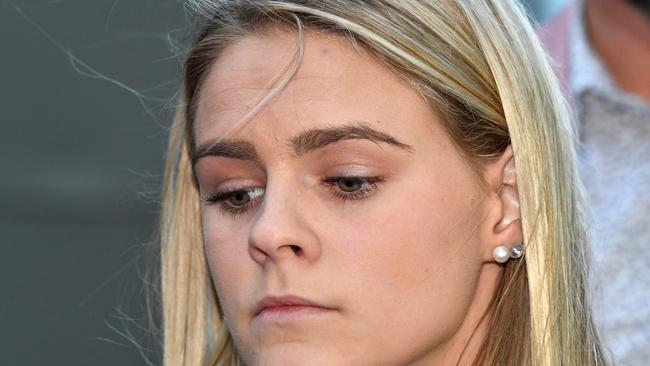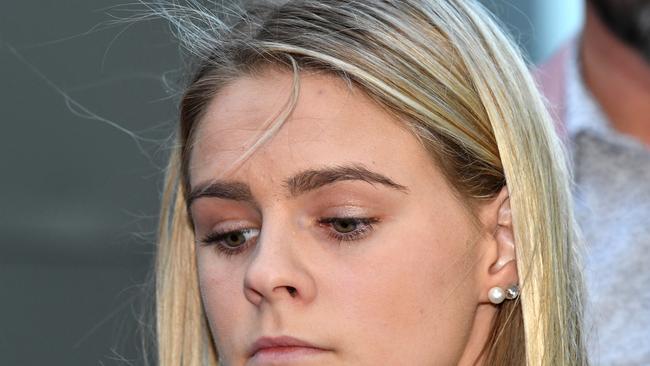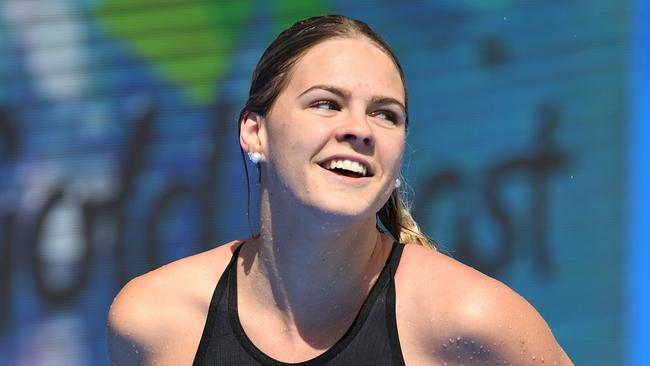Tokyo Olympic Games 2020: Investigation to be widened for swimmer Shayna Jack’s appeal
The investigation to clear rising star Shayna Jack will be widened to examine the role of Swimming Australia staff members who ran the camp in North Queensland where she tested positive to a prohibited substance.

Olympics
Don't miss out on the headlines from Olympics. Followed categories will be added to My News.
Swimming Australia staff who attended last year’s national team training camp where Shayna Jack tested positive will come under scrutiny when her upcoming appeal to the Court of Arbitration for Sport is heard, it can be revealed.
While there is no suggestion of any foul play, sources have told News Corp Australia, the investigation to prove her innocence will be widened to examine the role of Swimming Australia staff members who ran the camp in North Queensland.
It is understood scientists have now determined that it was during that same camp, held in late June 2019, that Jack unknowingly ingested the banned substance, Ligandrol, which led to her being handed a four-year suspension by the Australian Sports Anti-Doping Authority (ASADA).
Stream over 50 sports On-Demand with KAYO SPORTS on your TV, computer, mobile or tablet. Just $25/month, no lock-in contract. Get your 14-day free trial and start streaming instantly >

Jack did not testify before ASADA but will take the stand when her appeal to the CAS is heard, at a date still to be determined but expected soon, with sources saying no stone will be left unturned to show she was not at fault.
This will include a deep dive into the actions of Swimming Australia personnel who were at the pre-world championship training camp in Cairns, where Jack was randomly tested and subsequently returned the positive sample.
It wasn’t until a week later, when the Dolphins had relocated to Japan to finalise their preparations for the world titles in South Korea, that Jack was notified about the adverse sample and immediately sent home.
One of Australia’s most exciting up and coming stars, Jack has vowed to clear her name in order to try and qualify for the Tokyo Olympics, which have been delayed by 12 months to July 2021 because of the coronavirus outbreak.
Stripped of all her funding and banned from even training with her teammates or even a certified coach, the heartbroken Queenslander has been self isolating since July last year while waiting for the chance to prove her innocence.
News Corp Australia can reveal that the level of traces found in her sample were minutely small, substantiating her claims that she did not deliberately break the rules and the only way the banned substance could have got into her system was by contamination.
However, in order to be cleared, or receive a reduced sentence that will enable her to compete at the next Olympics with her suspension backdated to include time already served, the 21-year-old needs to convince the CAS that she did not knowingly take the substance.
The hefty ban she has already received from ASADA will have no bearing on her appeal whatsoever because the CAS will conduct a trial de novo, the Latin term for a fresh beginning.

That’s why critical new evidence, including scrutiny of Swimming Australia’s high-performance staff, will be heard for the first time.
While the CAS is not bound to follow the verdicts of similar cases, other athletes have succeeded in getting heavy reductions after testing positive for Ligandrol, a muscle-building substance often contained in supplements but not always listed on the ingredients.
Just last year, top Japanese swimmer Junya Koga had his four-year ban halved by the CAS while the new version of the WADA code, which comes into effect in 2021, offers another possible lifeline with further reductions available for athletes who accidentally test positive with low sample levels.
